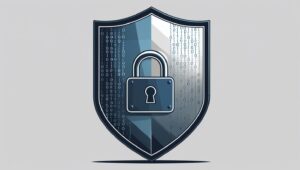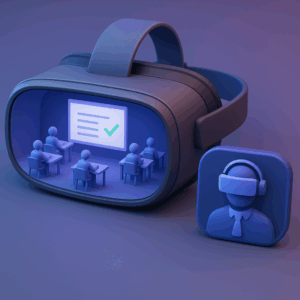The news of 57-year-old Newbury College in Massachusetts ceasing operations took everyone by surprise. This unfortunate closure comes as a shocking reminder of how today’s traditional higher education experience is under threat from competition, globalization and ed-tech innovation. Could anything have been done to avoid this closure? The school’s president, Joseph Chillo said, “Yes, we should’ve been doing online.”
An episode like this, stresses the need for colleges of all sizes to embrace and adopt online programs and proctoring solutions to remain competitive. In turn, to conduct a successful online examination, an effective proctoring solution is a must.
What is Online Proctoring?
Online proctoring, in simple words, is a form of testing that is digitally monitored. It involves supervising an online exam that is generally conducted in a remote location, such as a test taker’s house.
A Time-Out from Conventional Exams
“With great power, comes great responsibility”– this phrase resonates within the online testing scenario quite a lot. The power to test your knowledge from anywhere, and the responsibility to ensure its integrity. Let’s put a spotlight on some key features that make online proctoring such a necessity when it comes to remote online exams:
- International education at your fingertips– Students can take up any international course and appear for the test without the constraints of traveling, cost or location.
- The convenience of time– Online proctoring facilitates adjustments in your schedules. You can take up an exam as and when it suits you.
- Applicable to all types of exams– May it be essays or multiple choice questions, problem-based exams, aptitude tests or coding problems, online proctoring caters to all of them in a digital format.
(According to market trends, the e-learning industry is forecasted to cross the $300 Billion mark by the year 2025. This staggering figure suggests that more and more people are choosing online education over conventional classrooms)
Types of Online Proctoring
Proctoring solutions provide basic tools, applications, and programs that assist in monitoring students. Listed below are the four main categories of Online Proctoring:
Live Proctoring-
This type of proctoring replicates the setting of an actual exam. You are monitored in real-time by a live proctor through a webcam. Just like in a real classroom, the proctor continuously supervises the student to ensure a clean exam. Depending on the availability of the proctor, the testing session must be booked in advance.
Record and Review Proctoring–
As the name suggests, several images and logs are recorded on video for later assessment. A proctor can then analyze the sped-up video for any suspicious activity. Since it doesn’t require any prior scheduling, you can take the test as per your convenience.
Automated Proctoring–
The audio-video and screen share feeds of an ongoing online exam are monitored automatically through the software. The AI-based software is sophisticated enough to detect and flag any anomalies in the behavior or surroundings of the test taker.
Hybrid Live Proctoring with AI–
Best of all worlds, hybrid proctoring combines live proctoring and AI, with exception-based controls.
What’s in it for Universities?
For teachers, online proctoring brings credibility to knowledge. Institutions spend a lot of resources in training their faculty and they want to gauge how much the teachers truly learned. Since the tests are conducted under uniform parameters, teachers can be certified with high proficiency. Online proctored exams preserve the decorum and uphold the legitimacy of such exams.
For students, universities can use online proctoring to not only conduct entry-level and semester/annual exams but also weekly quizzes, essays, and assignments. Institutions have to give special importance to alarming concerns like student authentication and cheating but lack the resources. This is where automated proctoring solutions keep a close check on students and conduct fair performance evaluations.
Proctortrack saves the day
Proctortrack by Verificient is an automated online proctoring solution that brings credibility to online assessments. Proctortrack offers the world’s most user-friendly and advanced AI-based automated proctoring solution using continuous identity verification to deliver both quality, innovation and price leadership.
This unique Proctortrack technology approaches guarantees the highest level of Exam Integrity at the:
- Core Operating System Level
- Screen Desktop Level
- User Level via Web Camera
- Testing Environment Level
With these four levels of coverage, Proctortrack captures only the minimum amount of data needed and can deliver:
Easy user experience–
Seamlessly integrates into all LTI compatible LMSs: Canvas, Blackboard, Brightspace, Moodle, Sakai, etc. It runs over third-party examination platforms for externally conducted tests.
Browser agnostic and platform-independent–
Easily accessible by leading browsers and operating systems while establishing comfort for the student.
Online Remote Proctoring via Cognitive analysis–
Offers a premium remote test experience to the candidates by analyzing critical parameters, to maintain merit and utmost legitimacy.
Diverse Client pool–
Sophisticated enough to find utility in all types of educational institutions, MOOCs, professional firms and the corporate sector.
Robust fraud-proof online proctoring–
Adopts advanced machine learning and biometric analysis to perform automatic and continuous online exam proctoring. This provides a full proof solution to deter cheating.
Instinctive Design–
Bundles a smooth experience inside the LMS environment for organizers and learners. A range of customized settings helps accommodate all types of users and exams
Colleges who have embraced online courses can proudly boast of producing graduates who have a plethora of skills. Their students are armed with a strong resume, which gives them a confident edge in today’s competitive job market. Proctortrack has delivered over 2.5 million test sessions to date and has already established that it can revolutionize the way exams are conducted, as it validates educational credentials by ensuring trusted exam integrity. This, in turn, realizes competency and value to society.











